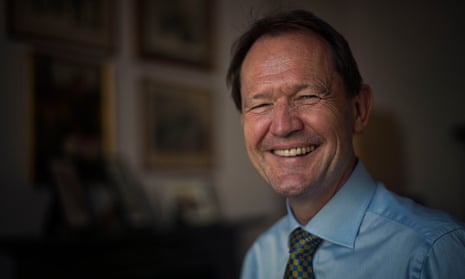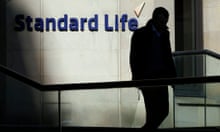Not all fund managers are deaf on the subject of soaring boardroom pay at public companies. The money-management industry has been obliged to appear vaguely concerned by a combination of self-interest, chivvying by government and general disquiet after 25 years of roaring inflation in directors’ rewards. Thus a few examples of naked excess – like BG Group’s plan to give its incoming chief executive a £25m package – provoke a revolt.
Ask fund managers how much they pay themselves, however, and you will generally get a firm “no comment”. There is no need for the customer – the investing public – to know the details, runs the argument. The cost of running a fund and its performance are fully displayed, the defence continues, so publishing fund managers’ pay and bonuses would serve no purpose other than idle titillation.
The Institute of Directors disagrees. In robust criticisms of the industry at the weekend, director-general Simon Walker called for more clarity on how fund managers’ salaries are earned. He is right to do so.
The worry is twofold. First, fund managers occupy a critical position in the chain linking savers, pensioners and future pensioners to public companies. Their role is not simply to try to pick winning investments and avoid losers. If they are doing their job properly, they are also guardians of good governance, including on matters of pay and incentives, in the interests of general economic wellbeing.
It’s hard to lecture against excessive pay, however, if you simultaneously refuse to disclose the basis on which you are paid, let alone how much. To the outside world, the system smacks of one bunch of highly remunerated financial professionals marking the homework of a similarly rewarded crew. In that world, everybody has an interest in not making too much fuss.
The second concern is more direct: are fund managers, and their employers, taking their investors for granted? Trade bodies, such as the Investment Association, assure us that pay-for-performance is the norm in their industry, but nobody bothers to publish the details.
There is a strong suspicion that, even as the assets pile up, the managers expect their slice to remain fixed for all time. Walker cites research showing that fund managers are taking a constant portion of growing pot. Why aren’t fees falling as investment houses get bigger? Why aren’t the benefits of size being passed on to individuals investors? Pay practices, kept beyond scrutiny, may be one explanation.
Walker (salary: £300,000) calls for more sunlight, saying a Financial Conduct Authority investigation may be required. The IoD, one suspects, is a reasonable touchstone of where public opinion lies. Fund management houses should wake up – your industry looks too cosy and too opaque, and the outside world has noticed.
Chi-Med: a prescription for success
Overlooked in last week’s crop of corporate results were full-year numbers from Hutchison China MediTech. Who they? Chi-Med is the creation of Asian billionaire Li Ka-Shing, of Hutchison Whampoa fame. It is an attempt to build a Chinese pharmaceutical company, and progress to date has been impressive. Back in 2009, you could have bought the Aim-listed shares at 50p. The share price today is £13.85, up 15% since last week.
About half the company’s value can be attributed to a division that sells and distributes over-the-counter medicines. The more exciting part is drug research and development, where chief executive Christian Hogg predicts Chi-Med will make its first new drug application next year. There are two contenders, both in cancer – one being developed with Eli Lilly, the other with AstraZeneca.
In total, Chi-Med has seven drug candidates in clinical trials, not all in oncology. It’s a high-risk business, of course, but seven shots at developing medicines that might each be capable of $1bn in annual sales makes Chi-Med an intriguing prospect. Success on any would make the current market value of £720m look cheap, even after the strong run.
Warren Buffett, Tesco exterminator
It will be no consolation to Tesco shareholders, but their company’s various woes in 2014 are the subject of a freshly minted Warren Buffett motto that will be rolled out for years to come: “In the world of business, bad news often surfaces serially. You see a cockroach in your kitchen; as the days go by, you meet his relatives.”
Buffett’s Berkshire Hathaway made a $444m (£290m) loss on its now sold Tesco holding. The great man blames himself for dawdling. Neat line, though.




